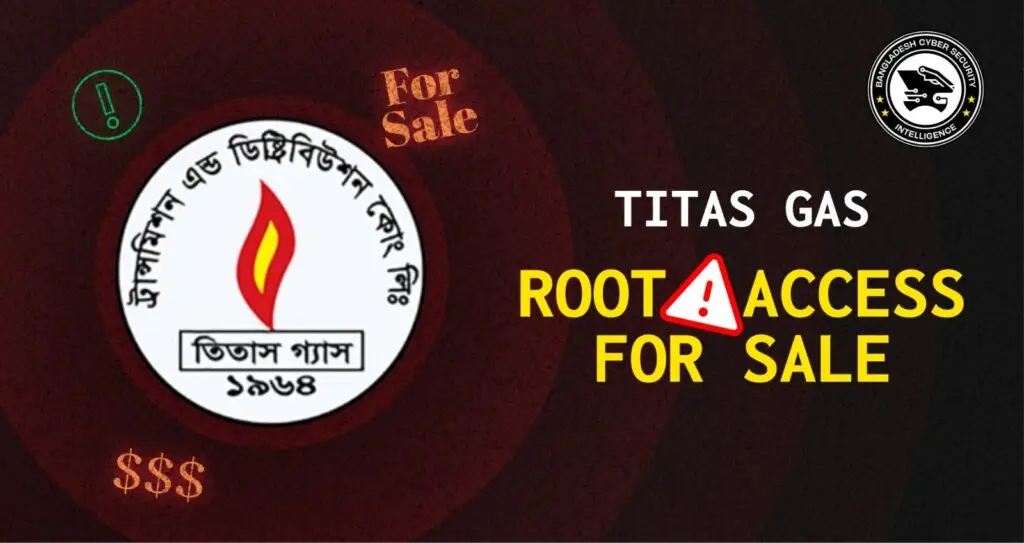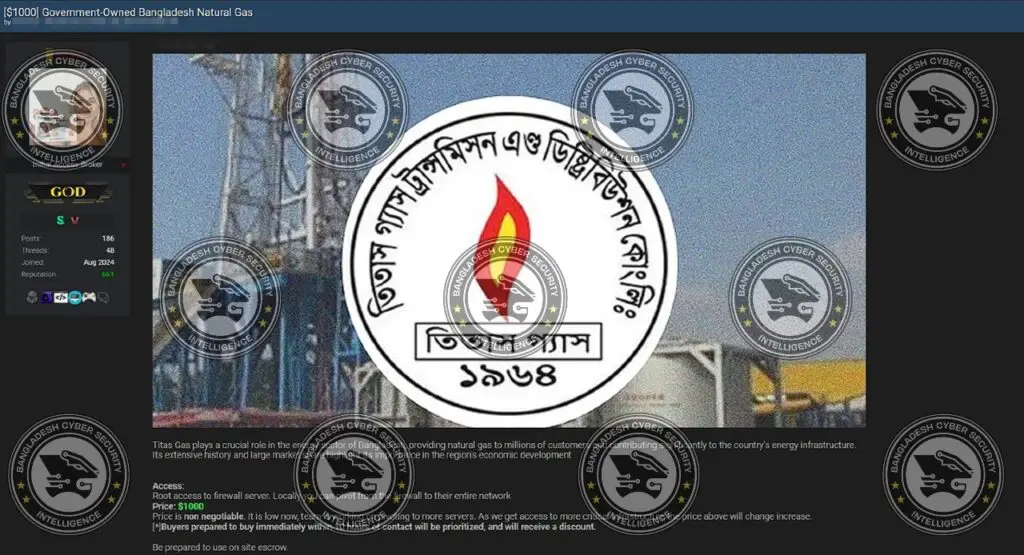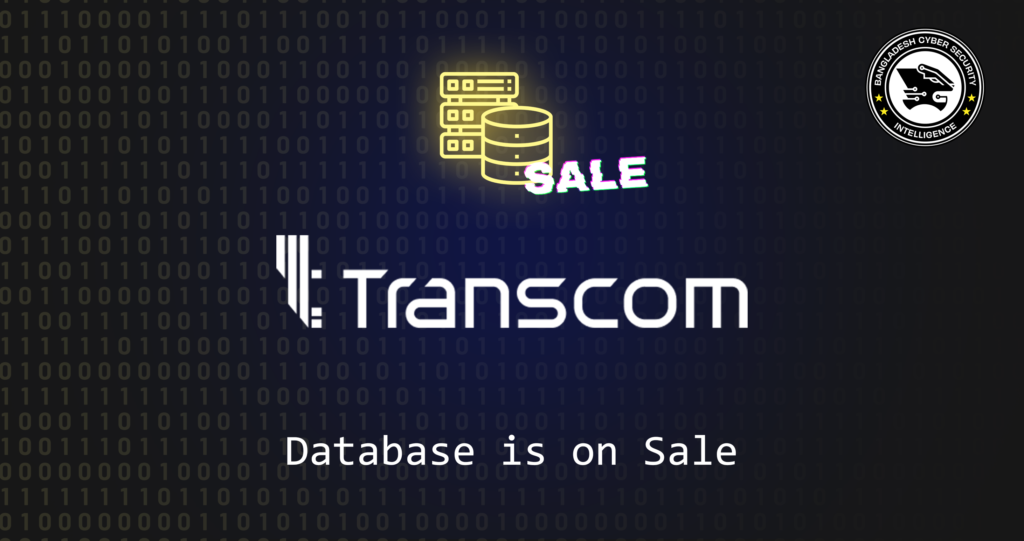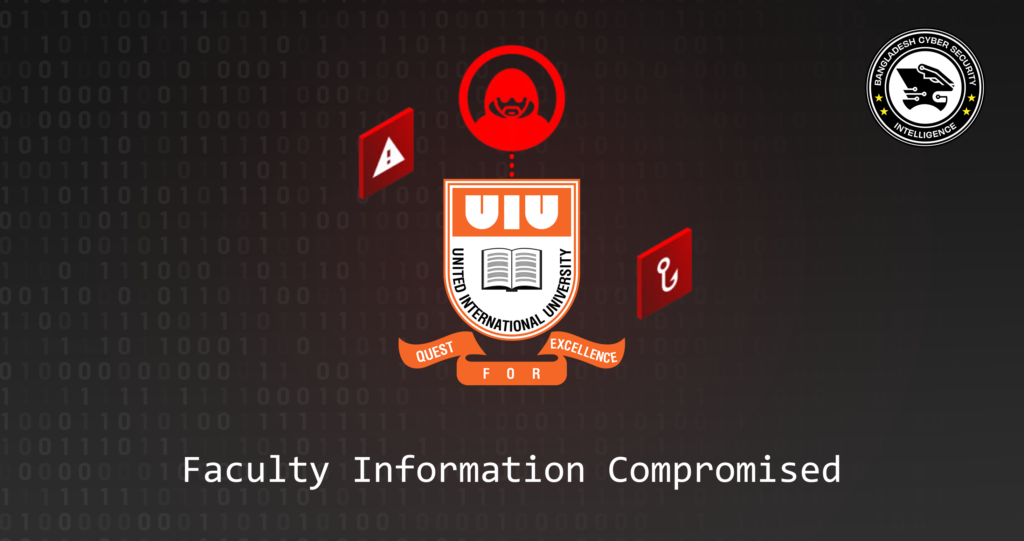
According to the Bangladesh Cyber Security Intelligence (BCSI) Threat Intelligence Platform , a threat actor has reportedly gained root-level access to Titas Gas’s firewall server and is actively offering this access for sale on the dark web, posing a serious risk to Bangladesh’s energy infrastructure.
Titas Gas, one of the primary natural gas suppliers in Bangladesh, is responsible for distributing gas to millions of residential and commercial customers. The company’s role is pivotal in Bangladesh’s energy sector, and any disruption could have widespread repercussions for both its customers and the nation’s economic stability.

The BCSI Threat Intelligence Team has uncovered claims on the dark web that an individual or group has obtained unrestricted access to Titas Gas’s firewall server, with alleged abilities to pivot into the organization’s broader network. This claim is backed by a listing from the threat actor, offering the access for an initial price of $1,000 USD. Alarmingly, the hacker(s) hinted that the price would increase as they expand their access to additional critical servers and infrastructure components.
National Security Concerns and Data Sensitivity
Titas Gas serves millions of users across Bangladesh, with a reported customer base of nearly 2.88 million as of June 30, 2023. In the fiscal year 2022-23, Titas generated significant revenue of ৳26,387.12 crore ($2.5 billion BDT) and contributed ৳706.92 crore ($68 million BDT) to the national treasury. With extensive financial resources and infrastructure, Titas is integral to the country’s energy landscape and economic development.
The hacker’s claimed access also poses significant data security risks. Titas Gas reportedly maintains a trove of sensitive information, including names, mobile numbers, photos, addresses, gas usage data, and even classified documents on national minerals. This access could expose private customer information and highly confidential national resources data, which could be exploited by hostile entities.
With the alleged control over the firewall server, the hacker could intercept or alter communications within the organization, potentially introducing malware or ransomware into Titas Gas’s network. Such actions could lead to operational disruptions, gas shortages, and even sabotage of Bangladesh’s energy distribution at a critical time, posing threats not just to economic stability but to national security.
Financial Implications and Risks to Critical Infrastructure
If the hacker successfully extends their access into other systems, they could interfere with essential infrastructure, disrupt the delivery of gas, or hold critical systems hostage for ransom. This potential compromise goes beyond financial loss and data privacy breaches—it also risks Bangladesh’s national energy security.
Gas distribution interruptions, especially on a large scale, could lead to substantial losses in revenue for Titas and create energy supply issues for millions of Bangladeshi citizens and businesses. Industries reliant on natural gas, including manufacturing and transportation, could suffer disruptions, with broader impacts on the economy.
The Need for an Urgent Response
This situation calls for urgent action by Titas Gas and the Bangladeshi government to safeguard critical assets. Steps such as immediate firewall audits, enhanced monitoring, and threat detection measures are essential to identify and isolate unauthorized access. Incident response teams should work closely with cybersecurity professionals to contain and mitigate the threat, bolster defense mechanisms, and review security protocols to prevent future breaches.
The BCSI Threat Intelligence Team will continue to monitor the situation, providing updates as more information becomes available. Bangladesh’s energy infrastructure is critical to the nation’s stability and growth, and protecting it from cyber threats must remain a top priority.


